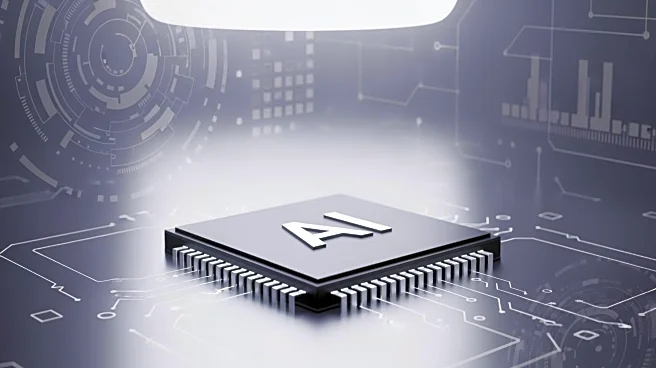What's Happening?
A former NASA aerospace engineer, who played a significant role in the Space Shuttle Program, emphasizes the importance of trust in the development and deployment of artificial intelligence (AI) technologies
in business. Drawing parallels between the meticulous trust-based processes in aerospace engineering and the current AI landscape, the engineer argues that businesses must integrate trust into their AI systems from the outset. This approach is crucial to avoid potential failures and to ensure that AI can fulfill its promise of accelerating business growth. The engineer's insights are informed by their experience in founding a company focused on building trust between businesses and their stakeholders, highlighting the necessity of transparency, continuous monitoring, and autonomous operations in AI systems.
Why It's Important?
The integration of AI into business operations is rapidly increasing, with projections indicating that by 2027, half of all enterprises will deploy AI agents. This shift underscores the need for robust trust mechanisms to prevent potential risks associated with AI deployment. The engineer's perspective is particularly relevant as businesses face growing pressure to adopt AI technologies while ensuring data privacy and security. The call for a 'trust operating system' in AI reflects a broader industry trend towards establishing comprehensive frameworks that can support the safe and effective use of AI. This development is critical for maintaining consumer trust and enabling businesses to leverage AI for competitive advantage.
What's Next?
As AI continues to evolve, businesses are expected to adopt new compliance frameworks and regulations tailored to AI systems. The engineer suggests that companies should not wait for regulatory bodies to catch up but should proactively implement trust-based processes. This includes creating transparent, continuous, and autonomous trust programs that can adapt to the dynamic nature of AI technologies. The future of AI in business will likely see increased collaboration between industry leaders and regulatory bodies to establish standards that ensure the safe and ethical use of AI.
Beyond the Headlines
The emphasis on trust in AI development highlights a cultural shift towards accountability and transparency in technology. This shift may lead to long-term changes in how businesses approach innovation, prioritizing ethical considerations alongside technological advancements. The engineer's insights also suggest that industries beyond aerospace and technology could benefit from adopting similar trust-based frameworks, potentially influencing broader societal attitudes towards AI and automation.










